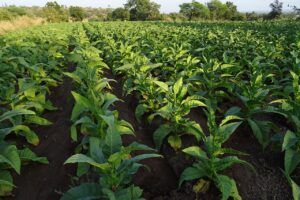Discovery and application of plant genes for dopamine biosynthesis and polydopamine production.
Commercial Applications
- Abiotic stress-resistant crops
- Reduced browning in fruits and vegetables
- Biomaterials
Benefits
- Improved plant resilience
- Production of dopamine and other catecholamines
- Biofuel production from cell walls
- Food quality
Background
Dopamine is crucial to both human and plant health, but its biosynthetic pathways in plants have eluded scientists until now. Current synthesis approaches lack efficiency, and current biological pathways are not well understood.
Technology Description
Scientists at Berkeley Lab have developed a technique to significantly increase dopamine production in plants by identifying and up-regulating key enzymes. Brachypodium distachyon plants can produce extremely high titers of dopamine (>5 mg/g Fresh Weight); a higher concentration than commercially available dopamine solution. This discovery unveils the previously unclear biosynthetic pathway of dopamine, while also enabling the bioengineering of plants for various health and environmental applications. LBNL found that transient overexpression of the pathway enzymes in Nicotania benthamiana resulted in not only production of extremely high levels of dopamine (>3 mg/g Fresh Weight), but also production of polydopamine. Potential applications include:
- The biosynthesis of pharmaceutical compounds such as morphine, codeine, epinephrine, and norepinephrine
- Improving plant resistance against abiotic stress, such as drought
- Crops with less browning
- Biosynthesis of polydopamine, a useful bio-coating material with interesting antimicrobial and electrical properties, as well as high stability.
The technology potentially offers a sustainable means to enhance plant resistance to stress, support human and animal health, contribute to soil carbon storage, reduce food browning and improve food quality, increase biofuel production from plant biomass, and develop useful biomaterials.
DEVELOPMENT STAGE:
Proven Principle
PRINCIPAL INVESTIGATORS:
- Yezhang Ding
- Trent R. Northern
- John Vogel
STATUS:
Patent Pending
SEE THESE OTHER BERKELEY LAB TECHNOLOGIES IN THIS FIELD:
Agricultural and Ecosystem Technologies
